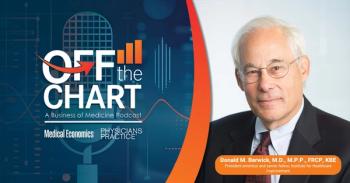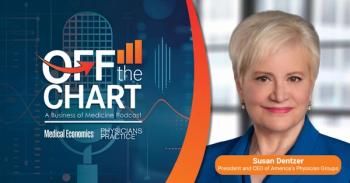
Does Medicaid Hurt the Poor?
The reform law expands access to Medicaid by increasing its income limits. In so doing, goes the thinking, it extends access to life-saving care to millions of people. But will it, indeed, expand access to care?
One of the most powerful arguments in favor of the Affordable Care Act is a moral one: It's just wrong that 42 million Americans are denied care because they can't afford private insurance but aren't poor enough to qualify for Medicaid. The reform law expands access to Medicaid by increasing its income limits. In so doing, goes the thinking, it extends access to life-saving care to millions of people.
But will it, indeed, expand access to care? Or will it merely prove the axiom that access to insurance is not the same thing as access to healthcare?
In 1997, Congress expanded Medicaid's State Children's Health Insurance Program (S-CHIP) to cover more children of the working poor. Researchers with the Center for Study Health System Change (HSC) compared states that had undergone large S-CHIP expansions to states with smaller expansions. Reporting its results last month, HSC found that physician utilization was lower in states with larger expansions - that is, with more kids newly covered by Medicaid.
How can this be? The main problem is Medicaid's obscenely low pay rates to doctors. Consider that the average national Medicaid payment for an office visit for a child is $47, compared to $81 for privately insured children, according to a survey by Ingenix Consulting. In most states, Medicaid is also a notoriously slow and unresponsive payer.
There was no rational business case for accepting Medicaid even before the Great Recession devastated state budgets. Most practices taking Medicaid do so out of a sense of charity. But now, the backbreaking Medicaid cuts that states have been making are combining with separate business challenges afflicting private-practice healthcare to make Medicaid utterly untenable. You need not imagine how this affects Medicaid patients trying to get appointments for care: In June, The New England Journal of Medicine reported on a next-available-appointment study that had researchers pose as parents of children with medical complications. They called doctors' offices to try to make an appointment for their "children." Those who identified as Medicaid enrollees were denied appointments two out of three times, compared with 11 percent for those who claimed private insurance. The Medicaid folks able to make appointments at all found their wait times about three weeks longer than for the privately insured patients.
Still, can Medicaid coverage, lousy though it may be, actually be worse than no coverage at all? That's hard to believe. Yet how many physicians would sooner accept uninsured patients who will pay a reduced rate out of their own pockets, even if it's on an installment plan of some kind, than take Medicaid?
Of course, many Medicaid recipients could not make those installment payments. But is that true, really, of the higher-income people who'll be newly eligible for Medicaid under the coming expansion? Many ideas for expanding access to private insurance have been floated: block grants to let states experiment with healthcare for the poor, instead of the federal straitjacket that is Medicaid; incentives to increase adoption of health savings accounts; expanded use of high-deductible catastrophic insurance plans. Or some combination of the three.
Meanwhile, separate research is raising questions about the quality of care Medicaid recipients get. A University of Virginia study found that post-surgical Medicaid patients were almost twice as likely to die in the hospital as those with private insurance - and 13 percent more likely to die than even the uninsured. That study is controversial, but no one doubts that Medicaid produces far worse health outcomes than virtually any other kind of insurance. Given that, why would anyone want to expand Medicaid, as the reform law does, rather than look for ways to expand access to private insurance?
Bob Keaveney is the editorial director of Physicians Practice. What's your experience with Medicaid? Tell us about it in the comment box below. Unless you say otherwise, we'll assume that we're free to publish your comments in upcoming issues of Physicians Practice, in print and online.
This article originally appeared in the April 2012 issue of Physicians Practice.
Newsletter
Optimize your practice with the Physicians Practice newsletter, offering management pearls, leadership tips, and business strategies tailored for practice administrators and physicians of any specialty.








